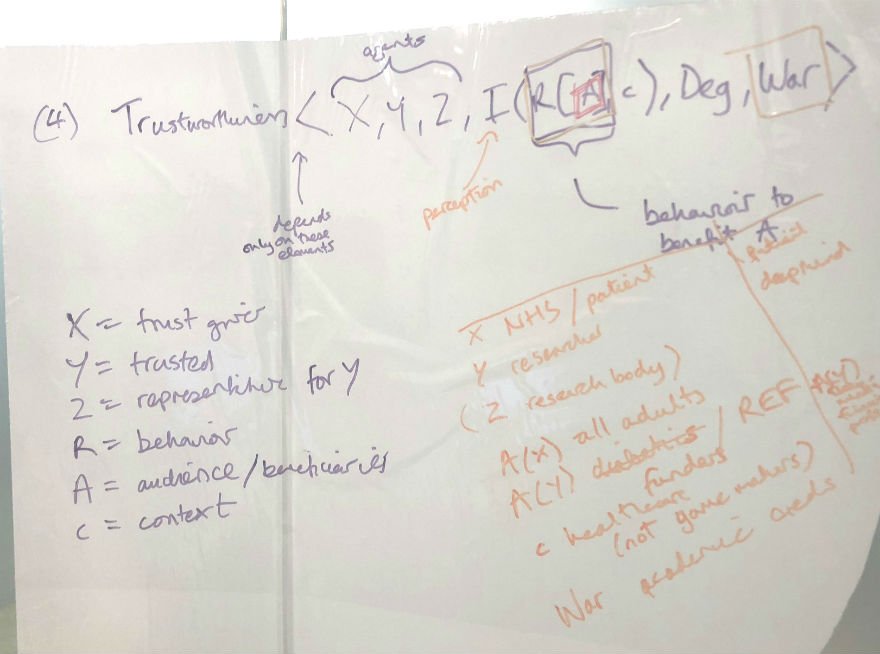
By Rachel Wilson, Senior Software Developer
What gets in the way of trust?
For five years now the ODI has been working to encourage greater access to data in ways that protect privacy, and in the hundreds of conversations we’ve had with those that hold data, we occasionally come across resistance and concerns.
We know that at the heart of these concerns is often a fear of the unforeseen, or something else that gets in the way of trust. Could it be that it is not only infrastructure, but also trust, that is essential for an open future for data?
An essential factor
Trust is an essential factor of life and as humans we have an intuitive understanding that it is a complicated issue. How each of us determines who to trust, and to what extent, is shaped by so many aspects: it depends on our culture, history, values, relationships, motivations and perceptions and so on.
Organisations are people
Since organisations, governments, businesses and institutions are made of people, then the systems, processes and mechanisms we design will in some way reflect the people who have created them. This includes the mechanisms to share our resources in a way that gives us confidence that the benefits will be distributed fairly.
For example, some people are concerned that if Ordnance Survey (national mapping agency in the UK) makes map and survey data open that ultimately only Google will benefit, at the expense of both the Ordnance Survey and UK-based businesses.
Therefore we would like to understand how and why trust is built, maintained and lost, and how this relates to sharing and openness.

Can trust be defined?
Trust appears to be an intuited, subjective and often nuanced topic. We can find many examples of how trust has been lost between parties, and we can point to many elements that are intended to increase trust – be that certificates, third-party intermediaries or regulation.
But can we point to a reason why we trust, why it is lost, and why a mechanism may work in a given situation but not in another? How does trust relate to the ecosystems we build?
Fortunately, during early research we came across an interesting academic paper (A general definition of trust by Kieron O'Hara) that formally describes trust in a way which we have found to be useful in framing our thinking. It defines trust in the following terms:
- Partners in a relationship
- Claims made about future behaviour
- Context about which claims are made
- The 'audiences' who receive benefits from behaviour
- Inputs into the judgements we make when deciding who to trust and to what extent
In team conversations about our other current research into data sharing models we have found this definition to be very helpful. It has given us a shared vocabulary, particularly when exploring how trust has been lost or how it might be increased within a system.
A basis for conversation
It’s a fascinating topic and we are keen to have this conversation with a wider audience. Especially since we are discovering that those involved in the design of data access models are attempting to address issues of trust.
So we are planning to summarise the paper for readers without an academic background and relate the concepts within to examples in the data ecosystem. We’d like to produce something that we can refer to – as a complement to our other research – that defines some shared vocabulary as a basis for ongoing conversations.
We trust you’ll be back to find out more. If you'd like to join the conversation, please get in touch.